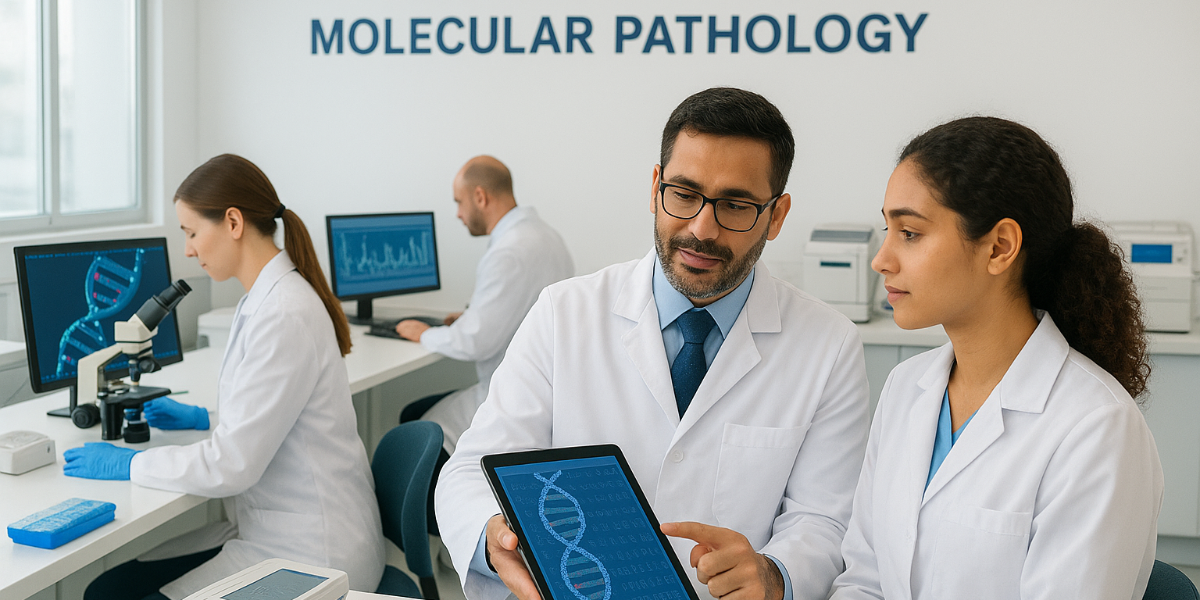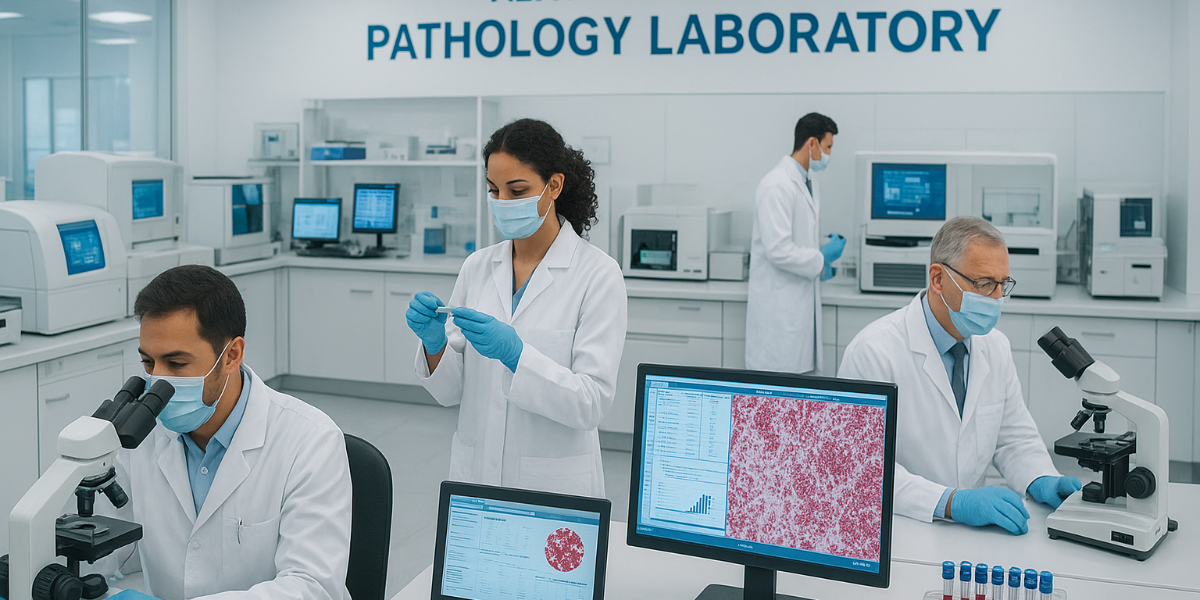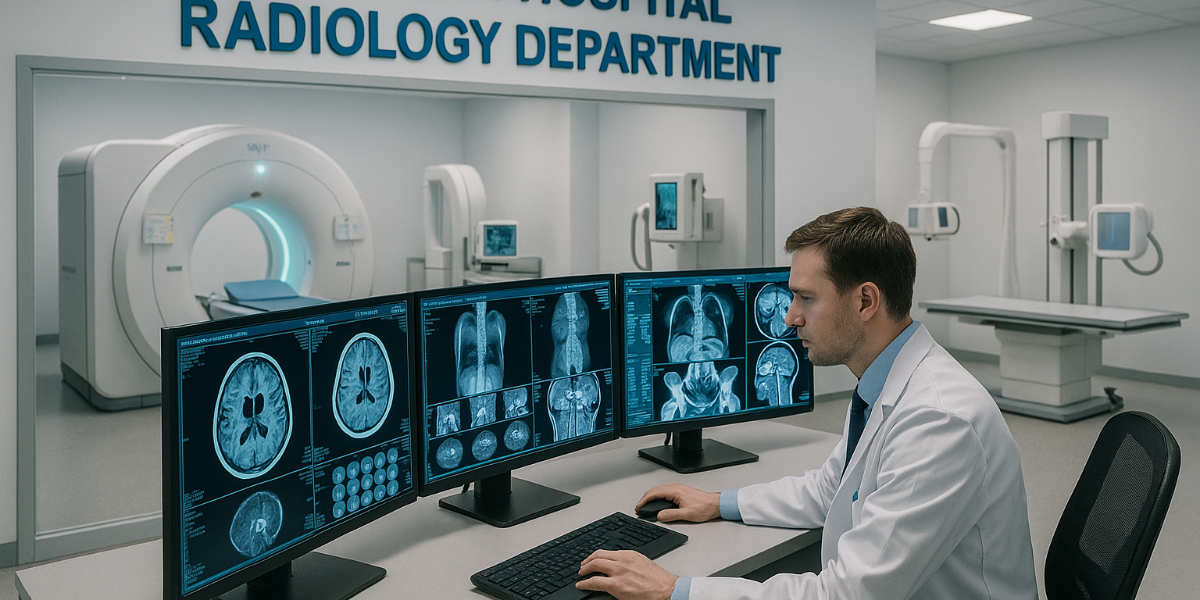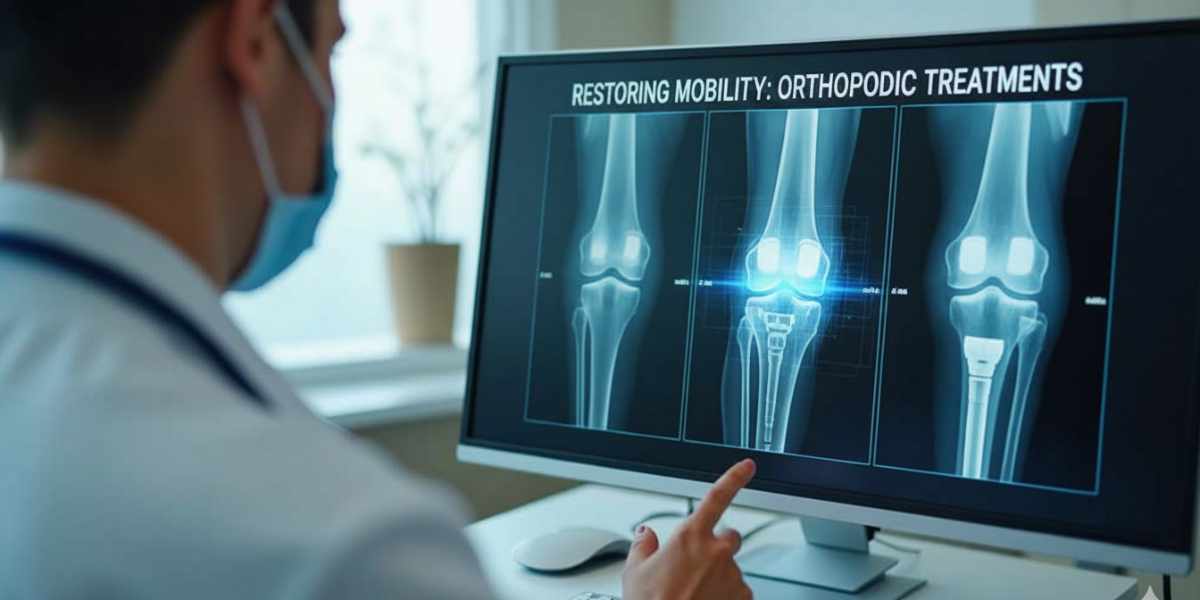
Understanding Molecular Pathology and Its Role in Modern Medicine
Introduction
In the rapidly advancing world of medical science, accurate diagnosis is the cornerstone of effective treatment. Traditional pathology has long relied on the microscopic study of tissues and cells to detect diseases. However, with the evolution of molecular biology, a revolutionary field known as molecular pathology has emerged — combining genetics, molecular science, and laboratory medicine to provide precise, personalized, and early disease detection.
At Ali Fatima Hospital (AFH), our Pathology Department utilizes advanced molecular diagnostic techniques to identify diseases at their genetic and molecular levels. This not only ensures timely and accurate diagnosis but also enables personalized treatment plans, improving patient outcomes and overall healthcare standards.
What Is Molecular Pathology?
Molecular pathology is a specialized branch of pathology that focuses on the study of molecules — such as DNA, RNA, and proteins — within tissues and body fluids. It investigates how changes at the molecular level lead to the development of diseases, including cancer, infections, and genetic disorders.
Unlike conventional pathology, which examines tissue structure, molecular pathology analyzes the genetic makeup of cells, helping doctors understand the exact cause and mechanism of a disease.
How Molecular Pathology Works
The process begins with the collection of a patient’s biological sample — blood, saliva, tissue biopsy, or other body fluids. These samples are then processed using highly sensitive molecular techniques, including:
- Polymerase Chain Reaction (PCR): Detects and amplifies tiny amounts of DNA or RNA to identify viruses, bacteria, or genetic mutations.
- Next-Generation Sequencing (NGS): Maps entire genetic codes to detect hereditary disorders or cancer-related mutations.
- Fluorescence In Situ Hybridization (FISH): Helps visualize genetic abnormalities within cells using fluorescent probes.
- Real-Time PCR (qPCR): Quantifies specific DNA or RNA sequences to measure viral load or mutation frequency.
These advanced technologies allow pathologists to detect even the smallest molecular changes, ensuring precise diagnosis and better-targeted treatment.
The Role of Molecular Pathology in Modern Medicine
Molecular pathology has transformed the landscape of healthcare by bridging the gap between laboratory science and clinical medicine. Here are some of its major contributions:
1. Early Disease Detection
Many diseases, especially cancers and infections, begin with molecular changes long before symptoms appear. Molecular tests can detect these changes early, allowing timely treatment and higher chances of recovery.
2. Personalized Medicine
No two patients are exactly alike. Molecular pathology enables doctors to tailor treatments based on an individual’s genetic profile. For example, certain cancer therapies work only for patients with specific gene mutations. By identifying these mutations, doctors can choose the most effective treatment with fewer side effects.
3. Cancer Diagnosis and Monitoring
Molecular pathology plays a crucial role in diagnosing various cancers such as breast, lung, and colorectal cancers. It helps determine tumor type, aggressiveness, and the likelihood of recurrence. Moreover, it assists in monitoring treatment response and detecting cancer relapse early.
4. Infectious Disease Diagnosis
Modern molecular tests can detect infectious agents like COVID-19, Hepatitis B & C, HIV, and Tuberculosis within hours. These tests are highly sensitive, reducing false negatives and ensuring timely isolation and treatment of infected patients.
5. Genetic and Hereditary Disorder Screening
Molecular pathology allows detection of inherited disorders such as thalassemia, cystic fibrosis, and sickle cell anemia. Couples planning for children can undergo genetic testing to assess potential hereditary risks, promoting informed family planning.
6. Pharmacogenomics
Pharmacogenomics — a subfield of molecular pathology — studies how a person’s genes affect their response to medications. It helps doctors prescribe the right drug at the right dose, minimizing adverse reactions and improving treatment success.
Applications of Molecular Pathology in Healthcare
Molecular pathology is now widely applied across multiple medical specialties:
- Oncology (Cancer Medicine): Detects mutations in cancer-causing genes like BRCA1, EGFR, and KRAS.
- Infectious Diseases: Identifies pathogens and tracks antimicrobial resistance.
- Neurology: Helps diagnose genetic neurological disorders such as Huntington’s disease or muscular dystrophy.
- Cardiology: Assesses genetic risks of heart diseases and thrombosis.
- Obstetrics and Gynecology: Used in prenatal genetic testing to identify chromosomal abnormalities in fetuses.
The versatility of molecular pathology makes it an essential component of modern diagnostic medicine.
Advantages of Molecular Pathology
1. High Accuracy and Sensitivity
Molecular diagnostic tests can detect minute molecular changes invisible to the naked eye or under a microscope. This ensures precise and reliable results.
2. Early and Preventive Care
By identifying genetic risks, molecular testing allows preventive interventions — long before disease symptoms appear.
3. Tailored Treatment Approaches
Instead of a one-size-fits-all approach, molecular pathology supports personalized medicine, improving treatment outcomes.
4. Faster Results
Advanced molecular techniques provide faster turnaround times compared to traditional diagnostic methods, which is crucial in emergency and cancer care.
5. Continuous Research and Innovation
Molecular pathology drives medical research forward, enabling discoveries of new biomarkers, targeted drugs, and diagnostic tools.
Molecular Pathology Services at Ali Fatima Hospital
At Ali Fatima Hospital’s Department of Pathology, we are committed to providing world-class molecular diagnostic services. Our laboratory is equipped with state-of-the-art technology, including PCR analyzers, automated extractors, and molecular imaging systems.
Our team of experienced pathologists, molecular biologists, and technologists work collaboratively to deliver accurate and timely results. We conduct a wide range of molecular tests, including:
- Cancer gene mutation panels
- Viral load testing (Hepatitis, HIV, COVID-19)
- Genetic carrier screening
- Prenatal genetic testing
- Infectious disease panels
- Pharmacogenomic testing
Each report is carefully reviewed and interpreted by our experts to ensure precision and clinical relevance.
Why Choose Ali Fatima Hospital for Molecular Testing
- Advanced Laboratory Infrastructure: Equipped with the latest diagnostic equipment for molecular testing.
- Experienced Specialists: Skilled pathologists and lab scientists with expertise in molecular biology.
- Accurate & Timely Results: Strict quality control and rapid reporting.
- Comprehensive Diagnostic Support: Integration of molecular, histopathological, and radiological data for complete diagnosis.
- Patient-Centered Care: Focused on providing compassionate, personalized, and ethical healthcare.
By combining scientific innovation with clinical excellence, Ali Fatima Hospital is playing a vital role in advancing medical diagnostics in Pakistan.
Conclusion
Molecular pathology represents the future of modern medicine — a future built on precision, early detection, and personalized care. Through its ability to uncover the genetic roots of diseases, it is transforming how doctors diagnose, treat, and prevent illnesses.
At Ali Fatima Hospital, we are proud to offer cutting-edge molecular diagnostic services that empower patients with accurate information and guide physicians toward the most effective treatment plans. Investing in molecular pathology means investing in a healthier, smarter, and more informed future
Relevant Blogs
Get in touch with us today to get medical services
Copyright 2026. All Rights Reserved By AFH















